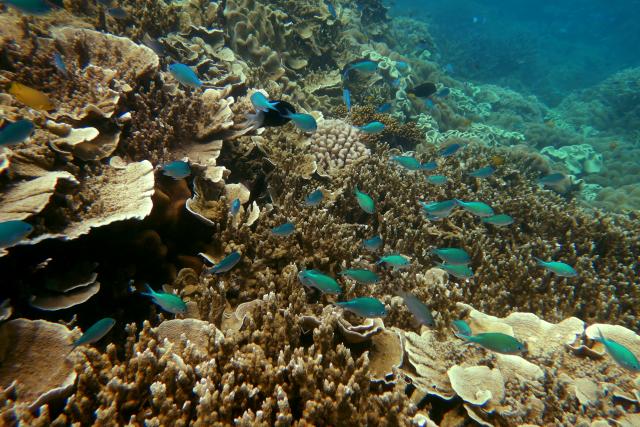The state government will install six reef protection markers near Mudjimba Reef to show boaties where it is safe to drop anchor without damaging the delicate marine ecosystem.
The installation of the protection measures follows a feasibility study into potential actions to prevent human impacts to the reef.
The study involved on-water surveys led by Queensland Parks and Wildlife Service (QPWS) rangers, extensive vessel use mapping and a departmental review of the University of Queensland UniDive’s ecological assessment report of the Mooloolaba Reefs.
During the surveys, QPWS rangers and citizen scientists from the UniDive Club did not observe any anchor damage to the reef, which is a positive sign.
However, as the area is a popular site for boat-based activities such as fishing, snorkelling and diving, surfing and general sightseeing, the government is taking proactive steps to ensure the reef’s protection from future potential impacts.
Following consultation with First Nations people and relevant stakeholders, the reef protection markers will be installed during winter 2024 to make the most of the calmer weather.
“The Miles Labor Government has listened to the community and shares it concerns about potential damage to this rare and beautiful reef,” Environment Minister Leanne Linard said.
“Not only is Mudjimba Reef a key drawcard for Sunshine Coast surfers, boaties, snorklers and divers to enjoy, but it provides habitat for many marine species and is a recognised Fish Habitat Area.
“With recreational boating and tourism in Sunshine Coast waters continuing to grow at a rapid rate, along with an increase in storms and coral bleaching events, it’s more important than ever that measures are put in place to protect our vulnerable marine ecosystems, including the magnificent Mudjimba Reef,” UniDive spokesperson Dr Chris Roelfsema said.
“The monitoring by citizen scientist has shown here, that volunteers can make a difference, and they should continue monitoring, to increase awareness and support decisions for protecting the Mudjimba Reefs.”
Mudjimba Island and the reef are popular spots for surfers, SCUBA tour operators, recreational fishers, jet skiers, stand up paddleboarders, sailing vessels, recreational and commercial snorkelers.
In 2021-2022, UniDive volunteers conducted an ecological assessment of the Mooloolaba reefs through UQ’s Coral Watch and Reef Check Australia protocols in a project led by Associate Professor Roelfsema in a voluntary capacity.
Installing six reef projection markers will cost about $30,000 with an ongoing maintenance cost of approximately $5,000 annually.







![[READER COMPETITION] – Win a family ticket to Hudsons Circus](https://noosatoday.com.au/wp-content/uploads/2026/02/Hudsons-circus-1-100x70.png)
